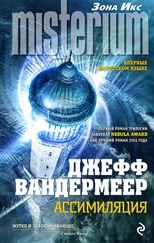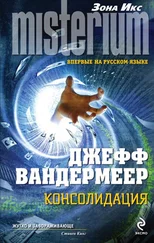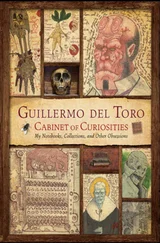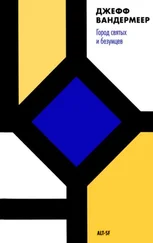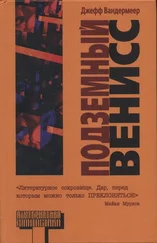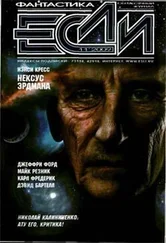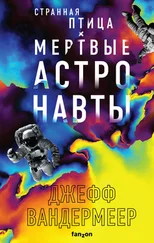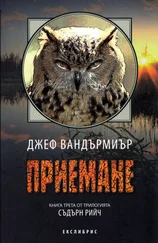Джефф Вандермеер - The Thackery T. Lambshead Cabinet of Curiosities
Здесь есть возможность читать онлайн «Джефф Вандермеер - The Thackery T. Lambshead Cabinet of Curiosities» весь текст электронной книги совершенно бесплатно (целиком полную версию без сокращений). В некоторых случаях можно слушать аудио, скачать через торрент в формате fb2 и присутствует краткое содержание. Жанр: Фэнтези, на английском языке. Описание произведения, (предисловие) а так же отзывы посетителей доступны на портале библиотеки ЛибКат.
- Название:The Thackery T. Lambshead Cabinet of Curiosities
- Автор:
- Жанр:
- Год:неизвестен
- ISBN:нет данных
- Рейтинг книги:5 / 5. Голосов: 1
-
Избранное:Добавить в избранное
- Отзывы:
-
Ваша оценка:
- 100
- 1
- 2
- 3
- 4
- 5
The Thackery T. Lambshead Cabinet of Curiosities: краткое содержание, описание и аннотация
Предлагаем к чтению аннотацию, описание, краткое содержание или предисловие (зависит от того, что написал сам автор книги «The Thackery T. Lambshead Cabinet of Curiosities»). Если вы не нашли необходимую информацию о книге — напишите в комментариях, мы постараемся отыскать её.
The Thackery T. Lambshead Cabinet of Curiosities — читать онлайн бесплатно полную книгу (весь текст) целиком
Ниже представлен текст книги, разбитый по страницам. Система сохранения места последней прочитанной страницы, позволяет с удобством читать онлайн бесплатно книгу «The Thackery T. Lambshead Cabinet of Curiosities», без необходимости каждый раз заново искать на чём Вы остановились. Поставьте закладку, и сможете в любой момент перейти на страницу, на которой закончили чтение.
Интервал:
Закладка:
Determined to humiliate them and destroy the credibility of these avant-garde heretics, the leading scholars of mainstream Lambsheadianism invited Simone Mukhopadhay, the most eloquent of the Digressionists, to a debate with Alan Demont, secretary of Lambshead Studies. As Demont started his careful demolition job, focusing on what he insisted was the lack of deep meaning in the “Twice-born Footnote” above, as it was called, from “The Violent Philosophy of the Archive,” his eight-year-old daughter (who was present at the session, crèche facilities unavailable, and who was drawing a tiger on the back of, and a forest in the margins of a printout of his paper) interrupted him, in front of the audience, to point out that the first letters of the last, oddly syntaxed sentence of that footnote spelled out a message. (She had picked out the relevant letters with crayoned flowers.)
Lambshead, it transpired, was more than a curator of this piece; he was, indeed, unusually active in its creation. From that Rosetta-stone footnote moment, identifying as it did the object of its own attention, it was a relatively short time until, by dint of intense and sometimes destructive rummaging through the doctor’s effects, papers, and above all his diaries, first the identity, then the story of the twice-found object and, to a limited extent, Lambshead’s peripheral and unclear role in its creation, came out. So many mentions of so many objects litter those extraordinarily extensive records that it is often only with such external prods that the distinctions between items of importance, and pretty rocks or banged together bits of wood with which Lambshead was momentarily taken, can be ascertained. These passages had been read many times, but no one had put them together, until that acronym came to light, and the memory of the attic, and the specific anecdote became important.
Here the focus must be on the reconstructed story: the history, prehistory, and two births of the artefact itself, the Pulvadmonitor. Or, in the name given it by Lambshead’s acronym, about the deep understanding that seems to slide with appearance, and so on: the Dust’s Warning.
will you your will?
will it to me.
I will you mine.
—UNKNOWN, “ODE TO EVERYTHING”
2. The First Birth
The professor, though a man of science, was a polymath. He enjoyed the company of, and endeavoured to participate in salons and discussion groups with, artists, writers, poets, and various other representatives of La bohème . One from such a milieu was the literary critic Thomas Thomas. It was to Lambshead that Thomas came in 1952, begging his help, bearing a large box and several books. Lambshead was surprised to see him, as their particular circle had mostly attenuated by the mid-1940s, and it was some years since he and Thomas had been in each other’s company.
After abbreviated pleasantries, Thomas explained his message and presence. He had been put in an awkward position, he explained, by Xanthe Serkis, and seeking Lambshead’s advice. Serkis was a critic, known to the professor, but only very slightly, a good decade previously. When he had met her, she had been working on a book about David Gascoyne and other British surrealists.
“That’s correct,” Thomas told him. “She still is. That’s rather the point.”
In a pre-echo of Thomas’s approach to Lambshead, Serkis, who had absented herself from the poetic and critical scene for several months, had recently and aggressively contacted Thomas, demanding to see him. Some months earlier, Serkis had received, she told him, a copy of Gascoyne’s Man’s Life Is This Meat, preceding the 1936 Parton Press edition. She had shown it to him, and he described it to Lambshead: imperfectly printed, the publisher Down-Dandelion Press, its colophon showing a stylised upside-down flower, its roots above the earth, its bloom below. In content, it was largely the same as the later official editions, except for a few differences of punctuation, and, the one substantial difference, a whole extra poem inserted into the text. Its title was “Ode to Everything.”
Serkis had received the book in the post. That she did not remember ordering it did not surprise her overmuch: as a critic of solid though unorthodox reputation, she received a good deal of material unsolicited, most of it from small presses anxious to gain her mention. There was, however, no return address, no covering note, no enclosure of any kind. She could find no details on DownDandelion Press from any of her usual sources, and later and exhaustive searches failed to turn up any more copies of the book. Gascoyne himself, whom she knew though not well, denied any knowledge of the copy or the poem, and seemed mildly amused but not very interested by them.
In truth, Serkis hadn’t felt much different at first, thinking the book some illicit curio, a mischievous thing put together from a proof, leaked to her with, she vaguely assumed, the “Ode . . .” inserted to draw attention—camouflaged by Gascoyne’s minor but real reputation—to another, shyer poet’s work. “She told Thomas,” Lambshead’s journals read, “that she had included a one-line mention of the odd edition in her monograph. Then padded that one line with another. Returned again, to add some few words, on the subject of the ode itself, interpreting it, with a tendentious and provocative heuristic, as if it were, in fact, one of Gascoyne’s, to see what it told us about the rest of his corpus.”
The teleology is clear. Lambshead recounts Thomas’s recollections. “What started as that mention became a paragraph, then a chapter—a chapter devoted to an interloping poem!—then a whole section. Abruptly, it was the subject of her book, still at first, in an increasingly absurd pretence, discussed as if Gascoyne had written it, until the title had been changed to Anon’s Ode . But that was not the end of it, either. Her focus did not stop. Had continued down like the switching and switching of a microscope’s field of focus, probing no longer the whole poem but one section, stanza, on down.”
Thomas had brought a copy of the “Ode to Everything,” the initial stanzas of which read to Lambshead, he tells us, like a rather too-unreconstructed riff on one thing or another, though here and there, a turn of phrase—“this minatory summer,” he mentions; “your felt-silenced castanets”; “the slander that a lizard feels no love”—startled him. (The few snips and stanzas that he reproduces, in passing praise, reproduced again here, are all we have. The poem, indeed the book, the few details available, are untraceable. Nor does the Internet help us, whatever the search string.)
Months of research, she had told Thomas; hundreds of pages of notes; reams of started, interrupted, and restarted chapters—all of which she brought out in sheaves and bundles and laid across his desk to prove her point—and Serkis had been moved to write her monograph entirely on one line: “What does the dust wish to tell us?”
“That’s the question,” she told Thomas. “That’s the only question.”
Thomas, quailing, had gently prodded, offered to read her book, and she had
looked at him with bewildered anger. She swept her papers off his table. Forget the book, she said. The book, she assured him, was no longer the focus of her work. Thomas had understood abruptly that what had been a project of interpretation had become one of lunatic detection. She was not, as he had thought at first, applying her considerable critical skills to the eight-word question: she was, rather, attempting to answer it. What does the dust wish to tell us?
She had opened her box. She had brought out for Thomas a glass dome, its base connected to that mockery of a battery. From the front of the dome jutted a flared tube, and rattling around within the glass, unsecured, were a pair of dentures. The two of them had regarded the collection of equipment for some time, in silence. “It took me three years of physics,” Serkis said, “but I worked out how to build it.”
Читать дальшеИнтервал:
Закладка:
Похожие книги на «The Thackery T. Lambshead Cabinet of Curiosities»
Представляем Вашему вниманию похожие книги на «The Thackery T. Lambshead Cabinet of Curiosities» списком для выбора. Мы отобрали схожую по названию и смыслу литературу в надежде предоставить читателям больше вариантов отыскать новые, интересные, ещё непрочитанные произведения.
Обсуждение, отзывы о книге «The Thackery T. Lambshead Cabinet of Curiosities» и просто собственные мнения читателей. Оставьте ваши комментарии, напишите, что Вы думаете о произведении, его смысле или главных героях. Укажите что конкретно понравилось, а что нет, и почему Вы так считаете.

